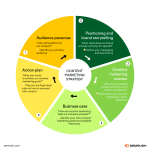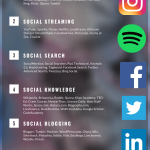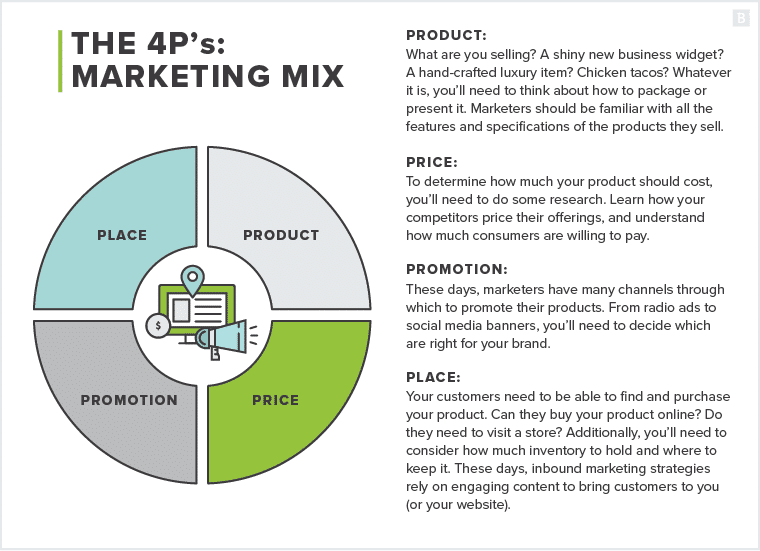Understanding the Concept: What is Marketing?
Marketing is an essential part of any business strategy. It’s often misunderstood or conflated with advertising and sales, but it’s considerably more complex. At its core, marketing is the process that involves the creation, communication, delivery, and exchange of offerings that have value for customers, clients, partners, and society at large.
The History of Marketing
The concept of marketing has evolved dramatically over the centuries. Early marketing was simply about exchange. People would trade goods for other goods. As time progressed and economies grew more complex, marketing evolved into a more recognized discipline. With the development of technology and the internet, we have seen a dramatic paradigm shift in marketing strategies, and its influence is now more pervasive than ever.
Modern Marketing
In today’s digital age, marketing has taken on new dimensions. It’s no longer about just selling a product. Now, more emphasis is placed on building relationships with customers and understanding their needs and desires. It’s about creating value and making a difference. This strategy is often referred to as customer-centric marketing.
The Marketing Mix
One of the important aspects of marketing is the «Marketing Mix,» also known as the «Four P’s of Marketing.» This includes Product, Price, Place, and Promotion. Each of these elements is equally important and must be balanced to ensure successful marketing.
Different Types and Approaches of Marketing
Marketing methods have evolved over time, and with that comes various strategies and approaches that have proven to be effective. Understanding these types and approaches can help organizations better reach their target audience and meet their business goals.
 Understanding Content Marketing: Your Comprehensive Guide
Understanding Content Marketing: Your Comprehensive GuideTraditional Marketing
Traditional marketing refers to any type of promotion, advertising or campaign that has been in use by companies for years, and that has a proven success rate. Methods of traditional marketing can include print advertisements, billboards, flyers or pamphlets, TV, newspaper, radio, etc. These methods are tried and accurate, often providing broad reach. However, they lack the ability to tailor messages to specific niche audiences.
Digital Marketing
In contrast, digital marketing is an approach that leverages online platforms and technology to promote products and services. This includes tactics like email marketing, social media marketing, Search Engine Optimization (SEO), pay-per-click advertising (PPC), and content marketing. This method allows businesses to reach larger audiences, offer personalized content, and analyze results in real-time.
Inbound vs. Outbound Marketing
The marketing field is also divided into inbound and outbound marketing strategies. Inbound marketing is about creating valuable experiences that have a positive impact on individuals and your business. It forms connections, solves issues, and helps build trust. On the other hand, outbound marketing includes any marketing efforts that send a message out to an audience whether they asked for it or not. While both approaches have their advantages, the most successful brands often utilize a mix of both.
The Relevance of Marketing in Today’s Business Environment
In the era of growing global competition, marketing plays a pivotal role in the success of any business. Marketing is not just about promoting products or services. It encompasses market analysis, identification of target audiences, creation of demand, and ultimately the building of a brand.
Understanding the Modern Consumer
The modern consumer is well-informed and has numerous choices. This is where marketing comes into play. By leveraging various strategies, businesses can gain insights into consumer behavior, craft messages that resonate with their needs and aspirations, and create value propositions that separate them from their competitors.
 Understanding Content Marketing: Your Comprehensive Guide
Understanding Content Marketing: Your Comprehensive Guide Understanding Digital Marketing: What It Is and Its Key Advantages for Your Business
Understanding Digital Marketing: What It Is and Its Key Advantages for Your BusinessImpact of Digitalization on Marketing
The advent of the digital age has revolutionized the marketing landscape. Digital marketing strategies, like SEO, Social Media Marketing, Email Marketing, and Content Marketing, allow businesses to connect with a global audience at a fraction of the traditional marketing costs. This has allowed even small businesses to compete on a global scale, thus underlining the importance of marketing in today’s business environment.
Marketing and Brand Image
It’s important not to overlook the role of marketing in shaping the brand image. A well-executed marketing campaign can help shape perceptions and foster a strong relationship with the consumers. Brand loyalty is a powerful tool in retaining customers and attracting new ones, and effective marketing is vital in building and maintaining this loyalty.
Key Elements and Strategies in Effective Marketing
An effective marketing plan is crucial for the growth and profitability of every business. These marketing efforts, when well-planned and well-executed, can significantly improve business revenue, brand reputation, and customer relationships.Here are some of the key elements and strategies in effective marketing:
Understanding your Target Market
One of the most important aspects of any marketing strategy is understanding who your target market is. This includes identifying their demographics, preferences, and behavioral patterns. An in-depth knowledge of your target market will allow you to create marketing strategies that effectively reach, engage, and convert these consumers into loyal customers.
Consistent Branding
Brand consistency is a key element in successful marketing. This involves creating a unique and identifiable brand image that is consistently portrayed across all marketing channels. This includes everything from your logo and color schemes to your messaging and voice. Developing a consistent brand will help build brand recognition and trust among consumers, thereby driving loyalty and repeat business.
 Understanding Content Marketing: Your Comprehensive Guide
Understanding Content Marketing: Your Comprehensive Guide Understanding Digital Marketing: What It Is and Its Key Advantages for Your Business
Understanding Digital Marketing: What It Is and Its Key Advantages for Your Business Understanding Social Media Marketing: What It Is and Why It Matters
Understanding Social Media Marketing: What It Is and Why It MattersUtilizing Digital Marketing
In today’s digitized world, businesses need to ensure they are utilizing digital marketing strategies. This can involve leveraging social media platforms, email marketing, search engine optimization (SEO), and content marketing. Utilizing digital marketing strategies will not only improve visibility and reach but will also provide valuable data insights that can be used to further tailor and improve your marketing efforts.
Case Study: Successful Marketing Examples in Contemporary Business
In the constantly evolving business world, the significance of innovative and adaptive marketing strategies cannot be overstated. The power of a strong marketing campaign in shaping a brand’s reputation, improving product sales, and driving business growth is a proven fact. In the heart of this write-up, we’ll explore real-life marketing examples that have brought significant success to businesses in the contemporary era.
Absolute Utilization of Digital Marketing: Tech Giants Rule the Game
Presenting, our first example, which emphasizes the potency of digital marketing, focuses on global technology behemoths like Apple and Amazon. They have expertly leveraged digital marketing platforms to establish a strong global presence. With strategic SEO usage, engaging content creation, laser-focused ads, and impactful social media outreach, these brands have set the benchmark for successful digital marketing.
Shaping Customer Experience: Starbuck’s Reward Program
Starbucks also offers a masterclass in successful marketing with their Starbucks Rewards Program. Building customer loyalty through rewards and personalized experiences, Starbucks has managed to sustain a great customer base even in the most competitive markets. Their marketing success is deeply rooted in understanding customer behavior and creating an engaging, rewarding experience that resonates with their audience.
Putting Customers First: Zappos’ Stellar Customer Service
Lastly, let’s look at Zappos, well-known for their exceptional customer service. Zappos has proved that putting customers first is indeed a successful marketing strategy. Their dedication to ensuring customer satisfaction, supplemented by a hassle-free return policy and quick response time, has set them apart from their competition. It stands as an excellent example of how traditional business principles, combined with contemporary marketing methods, can create a winning recipe for success.
 Understanding Content Marketing: Your Comprehensive Guide
Understanding Content Marketing: Your Comprehensive Guide Understanding Digital Marketing: What It Is and Its Key Advantages for Your Business
Understanding Digital Marketing: What It Is and Its Key Advantages for Your Business Understanding Social Media Marketing: What It Is and Why It Matters
Understanding Social Media Marketing: What It Is and Why It Matters Ultimate Guide: How to Make Money with Marketing Strategies
Ultimate Guide: How to Make Money with Marketing Strategies